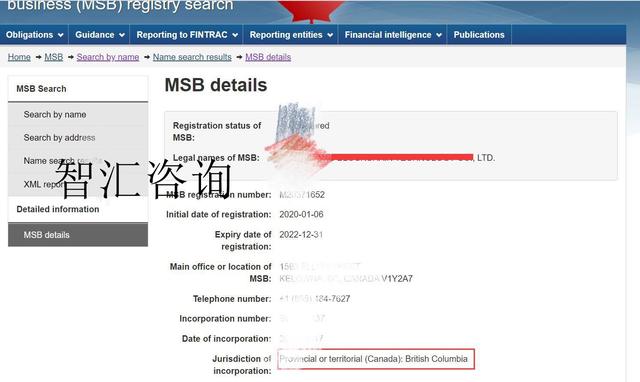仲裁裁决的三个月法定撤销期限不因存在欺诈而延长(新加坡案例)
仲裁裁决的三个月法定撤销期限不因存在欺诈而延长(新加坡案例)
2020年1月3日,在Bloomberry Resorts and Hotels Inc and another vGlobal Gaming Philippines LLC and another [2020] SGHC 01一案中,(判决请见:阅读原文)新加坡高等法院裁定《UNCITRAL国际仲裁示范法》第34条第3款规定的三个月时效是绝对的,不可延长。即便新加坡《国际仲裁法》第24条对于《UNCITRAL国际仲裁示范法》第34条而言是特殊法,该条规定的基于欺诈的撤裁申请没有规定时效,但是第34条第3款规定的三个月时效依然适用于《国际仲裁法》第24条。此外,本案法院裁定,即便一方当事人存在欺诈行为隐瞒证据,只要该欺诈没有严重到实质影响裁决,则裁决也不一定会被撤销。
一、背景介绍
原告Bloomberry Resorts和第一被告GGAM于2011年订立《管理服务协议》, GGAM随后转让了其所有权利于第二被告GGAM Netherlands。之后,原告试图终止《管理服务协议》,而被告根据《管理服务协议》,中的仲裁协议提起仲裁。仲裁庭裁定被告没有针对《管理服务协议》的因果欺诈或虚假陈述,以及原告终止了《管理服务协议》不合理,属于违约。
裁决作出后很久原告发现被告在仲裁中援引的证据被证明是错误的,而且被告明知这点。证明欺诈这点的证据主要是裁决作出很长一段时间之后美国政府向公众披露的美国司法部与LVA之间不起诉协议和美国证券交易委员会对LVS的停止和终止诉讼程序令(二者合称FCPA调查结果。)原告主张被告隐瞒证据或伪证这构成程序欺诈,另一方面即使该证据在裁决作出后才出现,FCPA调查也是被告欺诈的新证据。因此,原告主张新证据有助于证明裁决是基于故意隐瞒证据而导致的错误或不完整事实,而新证据若早先就出现则会影响原告提出主张的方式。
因而原告依照该点提起撤裁申请,但是已经超过了《UNCITRAL国际仲裁示范法》第34条第3款的三个月期限很久。
新加坡属于联合国国际贸易法委员会(UNCITRAL)的《国际仲裁示范法》法域,并将该示范法纳入进了新加坡《国际仲裁法》。然而,《UNCITRAL国际仲裁示范法》第34条第3款规定有三个月期限,但是新加坡《国际仲裁法》第24条是关于基于欺诈、腐败及自然公正的撤裁规定,其中没有明确规定时效,并且明确指出其相对于《UNCITRAL国际仲裁示范法》第34条而言是特殊法,而且当事人也可能依照该条申请撤裁。原告申请依照《国际仲裁法》第24条基于欺诈、腐败、以及公共秩序而撤裁,并且主张《UNCITRAL国际仲裁示范法》第34条第3款规定有三个月期限不适用于《国际仲裁法》第24条。
此外,由于原告还提出有关的欺诈的事实,申请法院依照《法院规则》O.3 r.4(1)对于撤销执行裁决令的时限进行延期,并且依照与撤裁理由相同的理由申请拒绝承认和执行裁决。
二、法院认定
1、有关法律规定
《UNCITRAL国际仲裁示范法》第34条规定
Article 34. Application for setting aside as exclusive recourse against arbitral award
(1) Recourse to a court against an arbitral award may be made only by an application for setting aside in accordance with paragraphs (2) and (3) of this article.
(2) An arbitral award may be set aside by the court specified in article 6 only if: ……
(3) An application for setting aside may not be made after three months have elapsed from the date on which the party making that application had received the award or, if a request had been made under article 33, from the date on which that request had been disposed of by the arbitral tribunal.
……
第34条.申请撤销,作为不服仲裁裁决的唯一追诉
(1) 不服仲裁裁决而向法院提出追诉的唯一途径是依照本条第(2)和(3)款的规定申请撤销。
(2) 有下列情形之一的,仲裁裁决才可以被第6条规定的法院撤销:……
(3) 当事人在收到裁决书之日起三个月后不得申请撤销裁决;已根据第33条提出请求的,从该请求被仲裁庭处理完毕之日起三个月后不得申请撤销。
……
Article 36. G rounds for refusing recognition or enforcement
(1) Recognition or enforcement of an arbitralaward, irrespective of the country in which it was made, may be refused only:……
(a) at the request of the party against whom it is invoked, if that party furnishes to the competent court where recognition or enforcement is sought proof that: ……
(ii) the party against whom the award is invoked was not given proper notice of the appointment of an arbitrator or of the arbitral proceedings or was otherwise unable to present his case; or……
(b) if the court finds that: ……
(ii) the recognition or enforcement of the award would be contrary to the public policy of this State.
……
第36条.拒绝承认或执行的理由
(1) 仲裁裁决不论在何国境内作出,仅在下列任何情形下才可拒绝予以承认或执行:……
(a) 援用的裁决所针对的当事人提出如此请求,并向被请求承认或执行的管辖法院提出证据,证明有下列任何情况:……
(ii) 未向援用的裁决所针对的当事人发出指定仲裁员的适当通知或仲裁程序的适当通知,或因他故致使其不能陈述案情;或……
(b) 法院认定有下列任何情形:……
(ii) 承认或执行该裁决与本国的公共政策相抵触。
……
《国际仲裁法》第24条规定:
24. Notwithstanding Article 34(1) of the Model Law,the High Court may, in addition to the grounds set out in Article 34(2) of the Model Law, set aside the award of the arbitral tribunal if —
(a) the making of the award was induced or affected by fraud or corruption; or
(b) a breach of the rules of natural justice occurred in connection with the making of the award by which the rights of any party have been prejudiced.
24.尽管有《UNCITRAL国际仲裁示范法》第34条第1款的规定,但在以下情况下,除《UNCITRAL国际仲裁示范法》第34条第2款规定的理由外,高等法院可以撤销仲裁庭的裁决:
(a)由于欺诈或腐败引起或影响而作出裁决;或
(b)在作出裁决时发生了违反自然公正规则的行为,损害了任何一方的权利。
《法院规则》O.3 r.4(1)
The Court may, on such terms as it thinks just, by order extend or abridge the period within which a person is required or authorised by these Rules or by any judgment, order or direction, to do any act in any proceedings.
法院可以按照其认为公正的期限,通过命令延长或缩短本规则或任何判决、命令或指示要求或授权某人在任何法律程序中采取任何行动的期限。
2、《UNCITRAL国际仲裁示范法》第34条与《国际仲裁法》第24条
新加坡法院之前在ABC Co v XYZ Co Ltd [2003] 3 SLR(R) 546 案,PT Pukuafu Indah and others v Newmont Indonesia Ltd and another [2012] 4 SLR 1157案,以及 Astro Nusantara International BV and others v PTAyunda Prima Mitra and others [2013] 1 SLR 636案中裁定第34条第3款中的“不得”(may not)一词具有强制性,将绝对时效设定为自收到裁决之日起三个月,此后所有撤裁措施则被禁止,而这种绝对时效是为了维持裁决的终局性和法律确定性。(The words “may not” in Art 34(3) have been held to be mandatory in meaning by setting an absolute time limit of three months beginning from the date of receipt of the award, after which all recourse against the award is barred. Such an absolute time limit recognises the need for finality and legal certainty.)
香港法院在Sun Tian Gang v Hong Kong & China Gas (Jilin) [2016] HKCFI 1611案中裁定,《UNCITRAL国际仲裁示范法》并未排除法院对撤裁的申请程序进行管制的权力,因此,法院有权根据《UNCITRAL国际仲裁示范法》第34条第3款行使裁量权裁定延长时效。在本案中,香港法院将“可以”(may)解释为允许,因此“不得”(may not)被解释为不可以,但是并非不必须。然而,在BXS v BXT案和本案中,新加坡法院选择不遵循香港的Sun Tian Gang案,并认为香港法院对“不得”(may not)的解释过于宽容,这是不正确的,因为与第34条第2款中的“可以”(may)一词相比,第34条第3款中的“不得”(may not)为两词,二者含义不同。本案主要的依据为BXS v BXT案,在该案中新加坡法院指出,第34条第2款中“可以”一词仅为法院在已经确立了第34条第2款第a项第i至iv目或第b项第i至ii目中的一个或多个条件时,仍然有不撤销裁决的裁量权。因此,第34条第2款中的“可以”(may)一词与第34条第3款中的“不得”(may not)一词没有逻辑上的关系。(Sun Tian Gang held that the Model Law does not preclude the court from regulating the procedure of applications to set aside awards, and therefore the court has the discretion to grant an extension of time under Art 34(3) (at [90]). Like Reyes IJ, I am unpersuaded by the court’s reasoning in Sun Tian Gang which starts with and draws support from the court’s permissive interpretation of the word “may” in Art 34(2) of the Model Law to give a similar permissive interpretation to the words “may not” in Art 34(3).Such an interpretation cannot be correct. A different meaning is convey by the single word “may” in Art 34(2) as compared to the words “may not” in the context of Art 34(3).)
依照ABC v XYZ案,第34条第3款所要表达的仅为自指定日期起三个月后不得提出撤裁申请。尽管使用的词语是“不得”(may not),但必须解释为“不能”(cannot),理由是这样做的目的显然是对裁决的异议时效进行限制,而且三个月的时效是绝对的。这种解释得到了与《UNCITRAL国际仲裁示范法》起草材料((A/40/17, 3–21 June 1985)的支持。三个月期限届满后,法院将无法受理任何提出的申请,因为第34条为在法院审理撤裁的完整唯一的依据,而其中并没有规定延长时效,而且由于法院仅依据该条即有管辖权审理有关申请,因此没有延长时效的规定即意味着法院无延长时效的权力。因此,新加坡法的立场是《UNCITRAL国际仲裁示范法》第34条第3款的时效是严格的,给予仲裁裁决的终局性和法律确定性以更大的权重(In the context of Art 34(3), the words “may not” take on a mandatory meaning of “cannot”. As Judith Prakash J (as she then was) held in ABC v XYZ(at [9]): All [Art 34(3)] says is that [an] application [to set aside] may not be made after the lapse of three months from a specified date. Although the words used are ‘may not’ these must be interpreted as ‘cannot’ as it is clear that the intention is to limit the time during which an award may be challenged. This interpretation is supported by material relating to the discussions amongst the drafters of the Model Law. It appears to me that the court would not be able to entertain any application lodged after the expiry of the three-month period as art 34 has been drafted as the all-encompassing, and only, basis for challenging an award in court. It does not provide for any extension of the time period and, as the court derives its jurisdiction to hear the application from the article alone, the absence of such a provision means the court has not been conferred with the power to extend time.)。
法院注意到,尽管国家立法可以修改《UNCITRAL国际仲裁示范法》第34条第3款的时效,但是与马来西亚、新西兰和爱尔兰等示范法法域不同,新加坡并未明确允许延长第34条第3款规定的三个月期限,或给予其他例外。此外,新加坡《国际仲裁法》中没有规定从发现欺诈或隐瞒证据或发现新事实或事后证据之日起来计算第34条第3款的期限。
在本案中,新加坡接受了仲裁胜诉方对《国际仲裁法》第24条中的“尽管有《UNCITRAL国际仲裁示范法》第34条第1款的规定”的解释,这意味着该语句必须与“除《UNCITRAL国际仲裁示范法》第34条第2款规定的理由外”一同理解,而这意味着,《国际仲裁法》第24条项下的撤裁的申请仍受第34条第3款规定的三个月时效的限制。新加坡法院的理由是,第34条第3款规定的三个月期限是严格的,这有利于仲裁裁决的终局性和法律确定性。《UNCITRAL国际仲裁示范法》的起草者认为,欺诈贿赂或腐败案件应受《UNCITRAL国际仲裁示范法》第34条第3款的严格时效限制(the three-month time limit in Art 34(3) is strict, favouring the policy of finality of arbitral awards and legal certainty. The drafters of the Model Law decided that cases of fraud, bribery or corruption should be subject to the strict time limit in Art 34(3) of the Model Law)。因此对于撤销以欺诈方式获得的仲裁裁决和/或在裁决作出后才发现新的事实或证据的情况而言,由国家法律决定到底是采用第34条第3款规定的时效还是单独规定时效(it is left to national laws to decide whether to adopt the time limit set out in Art 34(3) or to provide separate time limits for setting aside of fraudulently obtained arbitral awards and/or for the situation where there is subsequent discovery of new facts or evidence post award)。
对于欺诈,贿赂或腐败案件而言,其属于公共政策的范围,是根据第34条第2款第b项第ii目的撤裁的理由,而且该理由的三个月期限也不例外(It is not disputed that cases of fraud, bribery or corruption fall within the ambit of public policy as a ground for setting aside under Art 34(2)(b)(ii) and there is no exception to the three-month time limitf or this ground.)。因此,如果根据第34条第2款第a项第ii目和第34条第2款第b项第i目提出撤裁申请,则存在不可延期的三个月时效。但是,如果根据《国际仲裁法》第24条提出的撤裁的适用时效适用《法院规则》O 69A 第2(4)条,而法院可根据《法院规则》O 3第4(1)条和O 92第4条行使裁量权延长该时效以防止不公正,则这将在时效期限的法律范围方面造成内部不一致,使得当事人则可以根据《国际仲裁法》第34条第2款和第24条主张欺诈违反公共政策为由申请撤裁。如果将《国际仲裁法》第24条中的“尽管有《UNCITRAL国际仲裁示范法》第34条第1款的规定”解释为排除《UNCITRAL国际仲裁示范法》第34条第3款规定的期限,则将导致上述不一致。新加坡议会的立法意思不可能支持如此一个不协调和荒谬的结果,即当事人受到《UNCITRAL国际仲裁示范法》第34条第2款规定的不可延长的三个月时效限制的同时却可以通过适用《国际仲裁法》第24条而绕开该规定((a) there is a non-extendable three-month time limitation if recourse against an arbitral award is brought under Art34(2)(a)(ii) and Art 34(2)(b)(ii); and (b) the applicable time limit for an application to set aside an arbitral award under s 24 of the IAA is governed by O 69A r 2(4) of the ROC and this procedural time limit is extendable subject to the court’s general discretion under O 3 r 4(1) and O 92 r 4 of the ROC to prevent injustice. The inconsistency as described will result if the opening words “[n]otwithstanding Article 34(1) of the Model Law” in s 24 of the IAA are construed to have the effect of carving out the time limit in Article 34(3) fors 24 grounds. Parliament could not have intended for such an incongruous and absurd result whereby parties restricted by the non-extendable three-month time limitation under Art 34(2) of the Model Law would be able to circumvent the time bar requirement by resorting to the grounds set out in s 24 of the IAA.)。
新加坡议会的立法意思必然不是让《国际仲裁法》第24条第a款项下的欺诈或腐败案件不受《UNCITRAL国际仲裁示范法》第34条第3款规定的三个月时效的限制,特别是在《国际仲裁法》第24条第b款规定了宽泛的违反自然正义规则的情形时,因为这些情形会与《UNCITRAL国际仲裁示范法》第34条第2款第a项第ii目的“致使其不能陈述案情”有很大重叠。
因此,根据《国际仲裁法》第24条提出的申请必须适用《UNCITRAL国际仲裁示范法》第34条第3款的三个月的绝对时效期限,这有利于仲裁裁决的终局性。
3、对于撤销执行裁决令的时限的延期
原告还申请法院根据《法院规则》 O.3 第4(1)条行使其裁量权以延长执行该裁决的期限。法院指出,该条中“其认为公正的期限”赋予法院裁量权以延长期限以便实现个案公正。通常要考虑的因素包括:(a)延误的长度;(b)延误的原因;(c)若延长上诉期限则违约方胜诉机会的大小;(d)若允许延长期限则将对被诉人产生的损害程度。(The words “such terms as it thinks just” gives the court discretion to grant time extension in order to achieve justice in the circumstances of the case. Generally, the factors the court takes into consideration in deciding whether to grant an extension of time are: (a) the length of delay; (b) the reasons for delay; (c) the chances of the defaulting party succeeding on appeal if the time for appealing were extended; and (d) the degree of prejudice to the would-be respondent if the extension of time were granted: see Sun Jin Engineering Pte Ltd v Hwang Jae Woo [2011] 2 SLR 196 at [29]; AD v AE [2004] 2 SLR(R) 505 at [10]) with the courts generally focusing on the first two: Falmac Ltd v Cheng Ji Lai Charlie and another matter [2014] 4 SLR 202 at [14].)
本案法院参考了香港法院的Astro Nusantara International B.V. and Others v PT First Media TBK [2018]HKCFA 12案,而在该案中的期限逾时14个月,但香港终审法院仍然允许延长期限,理由是虽然延迟14个月很严重,但考虑到这对对方没有任何实质性的损害(除了费用),因此拒绝延期将导致被告在丧失机会来陈述对于其申请具有决定性优势的论点。(In Astro Nusantara International B.V. and others v PT First Media TBK [2018] HK CFA12 (“Astro Nusantara International B.V.”), the Court of Final Appeal of Hong Kong allowed an extension of time notwithstanding the fact that the order granting leave to enforce was set aside 14 months out of time. While the court noted that the delay of 14 months was substantial, it took into consideration the fact that the opposing party had not suffered any substantial prejudice (other than costs) and to refuse extension would be to “deny First Media a hearing where its application has decisively strong merits” (at [87]).)
法院指出,虽然延误的期限长短是一个因素,但重点是延误的原因,即裁决作出后发现新证据。法院指出,鉴于本案的情况,应允许原告提出延期申请中所述的欺诈主张,而不涉及实质性审理中该欺诈主张是否可能成功。这种做法对被告造成最低限度的损害,也符合司法的总体利益。(…given the circumstances of the present case, the plaintiffs ought to be allowed to assert the allegations of fraud as put forward in the application for time extension without reference to the further point of whether they are likely to succeed or not at the substantive hearing.This approach is in the overall interest of justice having regard also to the minimal prejudice caused to the defendants.)。
4、基于欺诈和新证据的撤裁申请和拒绝执行裁决申请
原告申请依照《UNCITRAL国际仲裁示范法》第36条第1款第a项第ii目的未能陈述其主张,以及第36条第1款第b项第ii目规定的公共政策作为依据,提请法院审理撤裁申请和/或拒绝执行裁决申请。
关于这点,法院认为,在本案中原告主张欺诈的唯一目的是将使用作公共政策以撤裁和/或拒绝执行裁决。尽管存在公共政策例外,但法院不会在没有充分理由的情况下干预仲裁的终局性,而且法院必须确信,在公共政策方面存在着某种形式的应受谴责或不合情理的行为而对裁决的作出产生了实质性的或重要的影响。在本案中,《UNCITRAL国际仲裁示范法》第36条第1款第b项第ii目下的公共政策与原告的欺诈主张息息相关。如果欺诈未得到证实,则法院的调查结束,并且拒绝执行裁决的申请失败。同样,原告主张其没有机会陈述其主张而依照第36条第1款第a项第ii目的结果也取决于该欺诈主张,如果不能证明欺诈则也会同样失败。(In this case, the only purpose of the plaintiffs’ allegations of fraud is to use fraud under public policy considerations as a defence to resist the recognition or enforcement of the Partial Award and to set aside the enforcement orders. Whilst public policy exception exists to prevent enforcement in appropriate cases, proving the defence of violation of public policy based on the ground of fraud presents legal and evidentiary challenges that require the court to go behind a valid award. At any rate, the court will not disturb the principles of finality in arbitration without good reason; the court has to be satisfied that some form of reprehensible or unconscionable conduct that is within the spectrum of gravity of public policy considerations had contributed in a material way to procuring the Partial Award or had an important influence on the result. In this case, the public policy question under Art 36(1)(b)(ii) of Model Law hinges on the plaintiffs’ allegations of fraud. If fraud is not proved, that is the end of the inquiry and the application to resist enforcement of the Partial Award fails. Likewise, the outcome of the plaintiffs’ reliance on Art 36(1)(a)(ii) (ie, no opportunity to present their case), which also hinges of the same allegations of fraud, would be the same if fraud is not proved.)
关于基于公共政策的撤裁,虽然“公共政策”一词是开放式的,在《UNCITRAL国际仲裁示范法》或《国际仲裁法》中均未受到定义,但有关新加坡政策公共范围的判例法应狭窄地定义,因此其门槛很高。新加坡上诉法院在PT Asuransi Jasa Indonesia (Persero) v Dexia BankSA [2007] 1 SLR(R) 597案中裁定,当维持裁决将“震惊良知”,或“对于公共良知而言明显不公,完全冒犯普通的合理和观念正常的公众”或“违反法院地最基本的道德和正义概念”时才得援引公共政策依据。尽管该案涉及根据《UNCITRAL国际仲裁示范法》第34条提出的撤裁申请,但其中的定义和原则也适用于目前根据第36条拒绝执行裁决的情况。上诉法院在AJU v AJT [2011] 4 SLR 739案中也提出了类似的意见,其中指出,针对外国裁决的撤销制度和拒绝执行制度中的公共政策是相同的。同样,根据《UNCITRAL国际仲裁示范法》第36条第1款第b项第ii目,在这方面国内和国际仲裁裁决的执行机制也不应有任何区别。(While the term “public policy” appears open-ended and is undefined in either the Model Law or the IAA, case law on the scope of the public of policy of Singapore is that it should be construed narrowly and consequently, the threshold for resisting enforcement of an award is a high one. The Court of Appeal in PT Asuransi Jasa Indonesia (Persero) v Dexia Bank SA [2007] 1 SLR(R) 597 (“PT Asuransi”) held that the public policy ground is invoked when the upholding of the award would “shock the conscience” or is “clearly injurious to the public good or … wholly offensive to the ordinary reasonable and fully informed member of the public” or “where it violates the forum’s most basic notion of morality and justice” (at [59]). While PT Asuransi concerns a setting aside application under Art 34 of the Model Law, the definition and principles therein also apply to the present case of resisting enforcement under Art 36 of the Model Law. A similar observation has been made by the Court of Appeal in AJU v AJT [2011] 4 SLR 739 (“AJU v AJT”) where it was stated that the question of public policy under both the setting aside regime and the enforcement regime for foreign arbitral awards is the same (at [34]). Likewise, there should be no difference in the enforcement regime for domestic international arbitral awards under Art 36(1)(b)(ii) of the Model Law.)
法院认为,根据《UNCITRAL国际仲裁示范法》第36条第1款第b项第ii目的规定,无论是实体性欺诈还是程序性欺诈,通常都属于违反公共政策,并且在涉嫌欺诈的情况下,当事人必须提出强有力的证据才行,因为法院不会作欺诈的推断认定。本案的特别之处在于,原告主张的存在欺诈的证据在仲裁时并不存在。法院采纳了该新证据,并在有关伪证和隐瞒证据方面,以及有关不披露或隐藏重要文件方面的法律原则(Swiss Singapore and Dongwoo Mann+Hummel Co Ltd vMann+Hummel Gmbh [2008] 3 SLR(R) 871案, BVU v BVX [2019] SGHC 69案,以及Elektrim SA v Vivendi Universal SA [2007] 1 Lloyd’s Rep 693),指出程序欺诈共有的三个核心要素:(a)不诚实或恶意;(b)新证据对仲裁庭决定而言的重要性;(c)在程序早期无法获取该等证据。
法院认为,原告主张的隐瞒信息不成立,而且其主张的程序欺诈缺乏实质性要求,即本案涉案欺诈不会严重影响裁决。特别是在欺诈对于裁决的影响方面,法院指出,并非任何欺诈案件都会使判决或裁决受到影响。即便在证明欺诈的情况下,欺诈与公共政策为之间也必须有足够的联系。依照Sinocore International Co Ltd v RBRG Trading (UK)Ltd [2019] 1 All ER (Comm) 810,其标准表明,欺诈并不能毁坏所有结果,并且与实质性和“致使联系”的概念无异。(Not any or every case of fraud would impugn ajudgment or award. As alluded earlier, even where fraud is proven, there must be sufficient degree of connection between the fraud and the award that is being enforced for the ground of public policy under Art 36(1)(b)(ii) of the Model Law to be engaged: The English decision in Sinocore International Co Ltd v RBRG Trading (UK) Ltd [2019] 1 All ER (Comm) 810 (“Sinocore”) is illustrative. This degree of connection test demonstrates that fraud does not unravel all and is in substance no different from the concepts of materiality and “causative link” adverted to….”)而本案中,所谓的程序欺诈与裁决之间没有足够的联系,不能说FCPA调查结果重要到以至于若早点发现则会导致仲裁员裁决申请人胜诉,因此有充分的理由不披露与FCPA调查结果有关的信息。(In sum, there is no sufficient degree of connection between the alleged procedural fraud and the Partial Award and it also cannot be said that the FCPA Findings were so material that earlier discovery would have prompted the arbitrator to rule in favour of the applicant: Elektrim (see[105]–[106] above). It follows also from the foregoing analysis that there wasa good reason for nondisclosure of the information relating to the FCPA Findings.)。不能说FCPA调查结果对仲裁中因因果欺诈问题和终止问题而提出的论点或仲裁将以完全不同的方式进行而言,有任何实质性影响(it cannot be said that the FCPA Findings have any material effect on either the arguments that were advanced in the Arbitration as to the Causal Fraud Issue and Termination Issue, or that the Arbitration would have proceeded differently altogether)。
关于原告未能提出其主张的问题,法院认为,原告主张的是其被剥夺提出另一种主张的机会,而非其被剥夺提出主张的机会,这与《UNCITRAL国际仲裁示范法》第36条第1款第a项第ii目无关。
因此法院驳回原告的撤裁和申请拒绝执行裁决主张。
三、评论
在《UNCITRAL国际仲裁示范法》与当地根据示范法而进行的立法文本之间的关系方面,香港法院对涉案条文的观点为,《UNCITRAL国际仲裁示范法》规定的“可以”(may)与“不得”(may not)二者都涉及“may”,因此未明确排除法院对撤裁的申请程序进行管制的权力,因而法院享有这方面的裁量权根据具体情况作出具体处理。然而,即便如此,新加坡并未遵循其观点,并认为“可以”(may)与“不得”(may not)二者没有逻辑上的关系,并且“不得”(may not)具有强行性,因此三个月的时效期间是强制的。这就导致了即使《国际仲裁法》第24条没有规定时效期间,但《UNCITRAL国际仲裁示范法》的三个月期间的强制性并不改变。若将《国际仲裁法》第24条与《UNCITRAL国际仲裁示范法》第34条切割开来解释,认为基于欺诈、腐败、自然正义及公共政策提出的撤裁申请不受时效限制的话,则会导致立法意旨内部产生冲突,这不符合议会的立法本意,因而三个月的强制期限也适用于《国际仲裁法》第24条。然而,对于在本案中这种裁决作出很长一段时间之后一方当事人才得知存在欺诈的情形,并且立法没有对此作出明确规定的情况下,这种强制适用强制的三个月期限的作法的合理性值得进一步研究。
此外,在依照欺诈为理由申请撤裁方面,本案法院的观点是,虽然欺诈构成公共政策撤裁的基础,但是单纯存在欺诈不一定导致裁决被撤销,欺诈与公共政策为之间也必须有足够的联系,对仲裁结果也必须有足够强的实质影响才可能导致裁决被撤销。因此一方面法院不否认本案情形在定性方面可能构成欺诈,因此违反公共政策,另一方面则在定量方面认为这种欺诈由于裁决没有根本影响,所以可能不足以导致裁决被撤销。由此可能产生一个问题,即法院一定程度上容忍欺诈,只要其影响不够恶劣即可,这在一定程度上可能也会导致仲裁操作中在这个问题上出现模糊地带,让一些当事人勇于铤而走险而不是对仲裁庭进行开诚布公地坦率披露。本案的后续进展值得我们进一步追踪。
信息源于:临时仲裁ADA






















评论